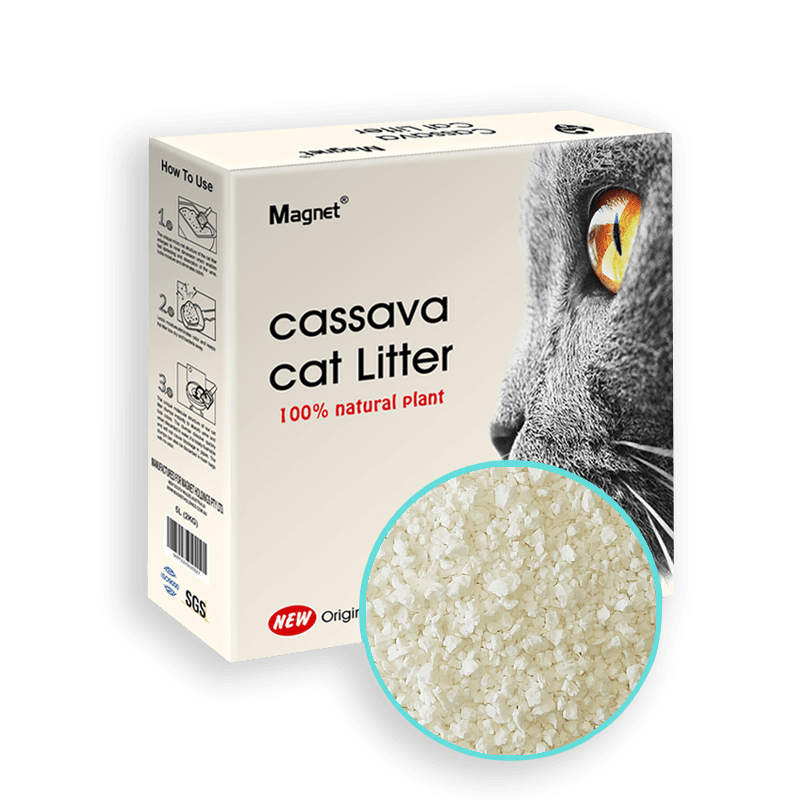Cat owners know that cats are known for their hygiene, and one of the most important aspects of a cat’s cleaning habits is using a litter box. Proper use of a litter box not only keeps your home clean and odor-free, but also provides a safe and comfortable space for your cat to defecate. This practice is essential to maintaining a harmonious relationship between cats and their owners because it prevents accidents and allows everyone to have a pleasant living environment.
But how do cats know to use a litter box? This question intrigues many cat owners because it seems to be a natural behavior that cats should understand instinctively. In fact, while some cats may learn to use a litter box without much instruction, others require a little training and patience to learn this basic skill. This article helps everyone understand how do cats know to use a litter box?
How Do Cats Know to Use a Litter Box?
How Do Cats Know to Use a Litter Box? It mainly comes from four different aspects.
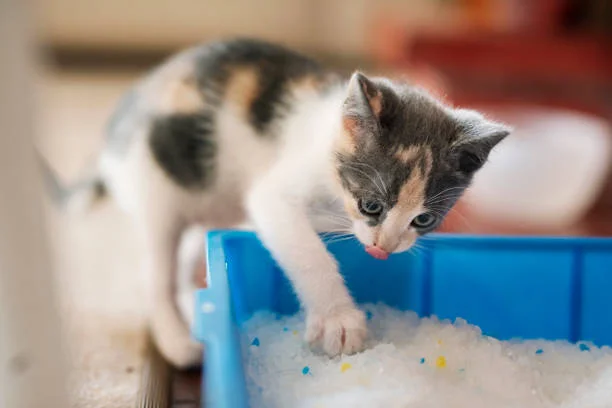
1. Instinctual Behavior
Cats have a natural instinct to bury their waste. In the wild, this behavior serves important purposes. By burying feces, they conceal their presence from potential predators. The scent of waste could attract unwanted attention, and covering it up helps keep them safe. Additionally, it helps maintain a clean living environment, which is crucial for their health.
Mother’s Influence
Kittens learn a great deal from their mother. If a kitten is with its mother in the early weeks, the mother will teach it many behaviors, including how to use the litter box. She will show the kittens where the appropriate place is to relieve themselves and demonstrate the act of scratching and covering. This early learning is crucial for the kitten’s development of proper litter box habits.
2. Sensory Cues
A. Scent
Cats have a highly developed sense of smell. The litter box has a distinct smell, especially when it contains litter that is familiar to the cat. The cat can recognize this scent and associate it with the place for elimination. Different types of litter have various scents, and cats can become accustomed to a particular one. If the litter smell changes suddenly, it may cause some confusion for the cat, but they generally can still recognize the area as the litter box location.
B. Texture
The texture of the litter also plays a role. Cats’ paws are sensitive, and they are accustomed to the feel of the litter under their feet. Some cats prefer certain textures, such as fine-grained or clumping litter. The unique texture of the litter in the box gives them a tactile cue that this is the place to go.
3. Environmental Familiarity
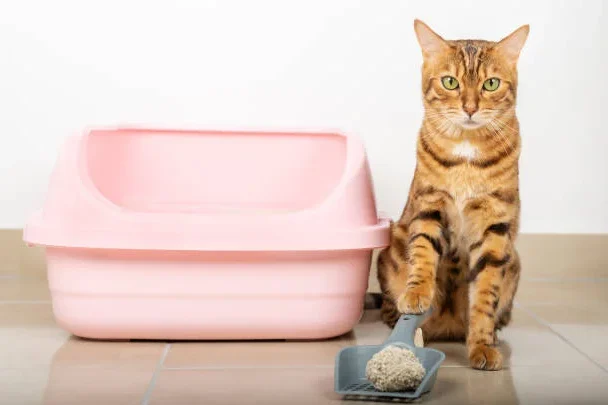
A. Location and Placement
Owners usually place the litter box in a relatively quiet and accessible location. Cats quickly become familiar with the location of the box within their living environment. Once they learn where it is, they will return to that spot when they need to use it. It should be in an area where the cat feels safe and not too exposed. For example, a corner of a room that is not in a high-traffic area is often a good choice.
B. Consistency
Keeping the litter box in the same place helps the cat develop a routine. If the box is constantly being moved around, it can cause stress and confusion for the cat, and they may have difficulty finding it. Consistency in location, as well as the type of litter and box used, provides a sense of security and familiarity for the cat.
4. Learning and Adaptation
A. Positive Reinforcement
When a cat uses the litter box correctly, owners can provide positive reinforcement such as praise, treats, or gentle petting. This positive feedback helps the cat understand that using the litter box is the correct behavior. Over time, they will continue to use it regularly in order to receive the rewards and attention.
B. Trial and Error
Some cats may figure out the litter box through trial and error. They may explore different areas in the home until they discover the litter box and learn that it is the appropriate place to relieve themselves. With each successful use, they become more accustomed to the process and are more likely to continue using it correctly.
We believe you already know how cat knows to use a litter box. Let’s continue reading.
Are There Some Cats Who Won’t Learn How to Use a Litter Box
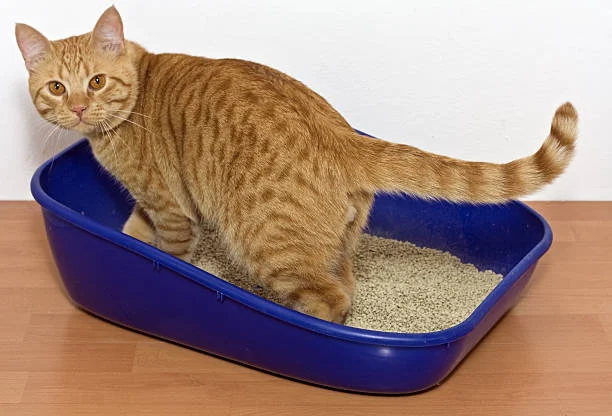
Yes, some cats may struggle to learn to use a litter box.
Reasons include medical problems such as urinary tract infections, bladder stones, or joint pain that make it uncomfortable for them to use the box and cause avoidance.
Stress and anxiety from a new environment, changes in the household like a new pet or person, or major disruptions can disrupt their litter box habits. Cats can also be picky about litter, with preferences for type, texture, or scent; if not to their liking, they’ll refuse the box. Additionally, if the litter box is in a noisy, busy location or isn’t clean enough by their standards, they might not use it.
Reasons Some Cats Struggle
In rare cases, there could be underlying behavioral issues, such as territorial marking outside the box. But with proper attention and sometimes veterinary help, most cats can be trained or have their issues resolved to use the litter box properly.
Medical Issues:
If a cat has a urinary tract infection, bladder stones, or other health problems, it can cause discomfort and make them avoid the litter box. For example, a cat with a painful UTI might associate the pain with using the box and try to find other places to relieve themselves.
Stress or Change:
A new home environment, the addition of a new pet or family member, or a change in the type of litter can stress a cat. Some cats are very sensitive to change and may stop using the litter box as a result.
Litter Box Conditions:
If the box is dirty, has the wrong type of litter (some cats are picky), or is in an inconvenient location, a cat may not use it. For instance, a box that is in a noisy or high-traffic area might make a cat feel uneasy.
Behavioral Problems:
In rare cases, there could be underlying behavioral issues, such as territorial marking outside the box. But with proper attention and sometimes veterinary help, most cats can be trained or have their issues resolved to use the litter box properly.
Do Cats Have to Be Trained to Use a Litter Box
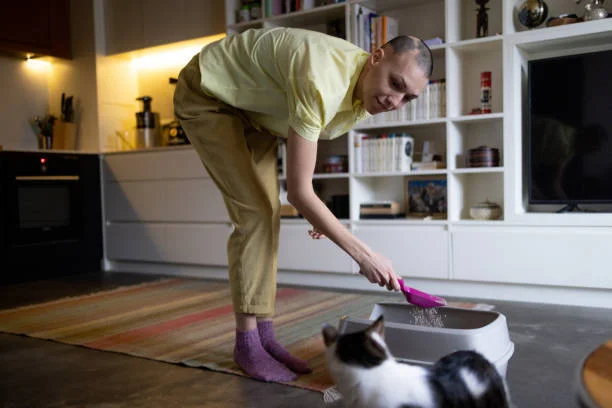
Cats need to be trained to use a litter box. While some cats may not need much instruction to use a litter box, others may need a little training and patience to learn this basic skill.
With consistent training and positive reinforcement, most cats can learn to successfully use a litter box. However, some cats may need more time and patience, especially if they have had negative experiences with using a litter box in the past. In these cases, it may be helpful to consult a veterinarian or professional cat trainer for additional guidance and support.
How Do Cats Know Where Their Litter Box Is

Olfactory Guidance
Familiar With Odor Memory
Cat litter itself has a unique smell. During use, cats will contaminate the litter box with their own excrement and some odor molecules secreted by the body. Cats have extremely sensitive sense of smell and can identify these mixed odors. When the cat litter box is placed in a certain area, the surrounding space will be filled with traces of related odors over time. Even if the owner moves the cat litter box slightly, as long as it is still within a certain range, the cat can track it with its keen sense of smell.
Self-odor marking
Every time a cat moves in the cat litter box, it will leave a very small amount of its own odor secretion on the edge of the bowl, the nearby ground, etc. These weak odor markings are like a positioning signal for cats. When they need to go to the toilet, they will find the cat litter box by smelling these odor markings they left behind.
Spatial memory and habit formation
Fixed position memory
Owner usually puts the cat litter box in a relatively fixed place, such as the corner of the bathroom, the corner of the balcony, and other quiet and seldom disturbed areas. Cats will form spatial memory of this fixed location. After using the litter box in this location many times, the cat’s brain will establish a path memory from the living environment to the location of the litter box.
Daily activity habits
Cats have a certain regularity in their daily lives. Activities such as eating, playing, resting and defecation have a rough time interval and habitual pattern. When they form the habit of using the litter box in a fixed location, when it is time to defecate, the body’s biological clock and habits will prompt them to go to the familiar location of the litter box.
Conclusion
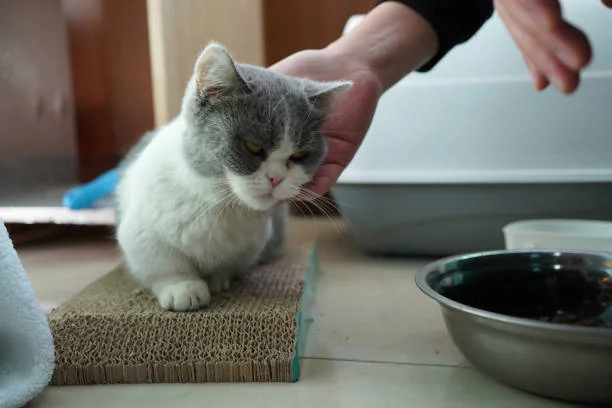
Cats know how to use a litter box based on instinct, sensory cognition and environmental learning. Instinctively, they have the habit of burying excrement.
Sensoryly, they use their sense of smell to identify the smell of the litter box and the litter, and their paws are sensitive to the texture of the litter. In the environment, they are used to a fixed, quiet and accessible litter box location, and cleanliness is also critical.
Kittens can learn from their mothers, and positive feedback from their owners and their own exploration can also help them master it. However, due to factors such as illness, stress, and litter preference, some cats have difficulty using it.
Conclusion
While it may seem like a magical feat, the answer to how cats know to use a litter box lies in their instincts. Cats, as descendants of wild cats, have a natural inclination to bury their waste to hide their scent from predators. This instinctual behavior, combined with a bit of training from their mothers or human caregivers, makes litter box use a seamless part of their lives.
To ensure your feline friend has the best possible litter box experience, consider stocking up on high-quality cat litter. Maget Cat Litter offers a wide range of premium litter options at wholesale prices. By choosing our products, you’re not only providing your cat with a clean and comfortable environment but also saving money.
Visit our website today to explore our selection and place your order! [Contact Us Now]









